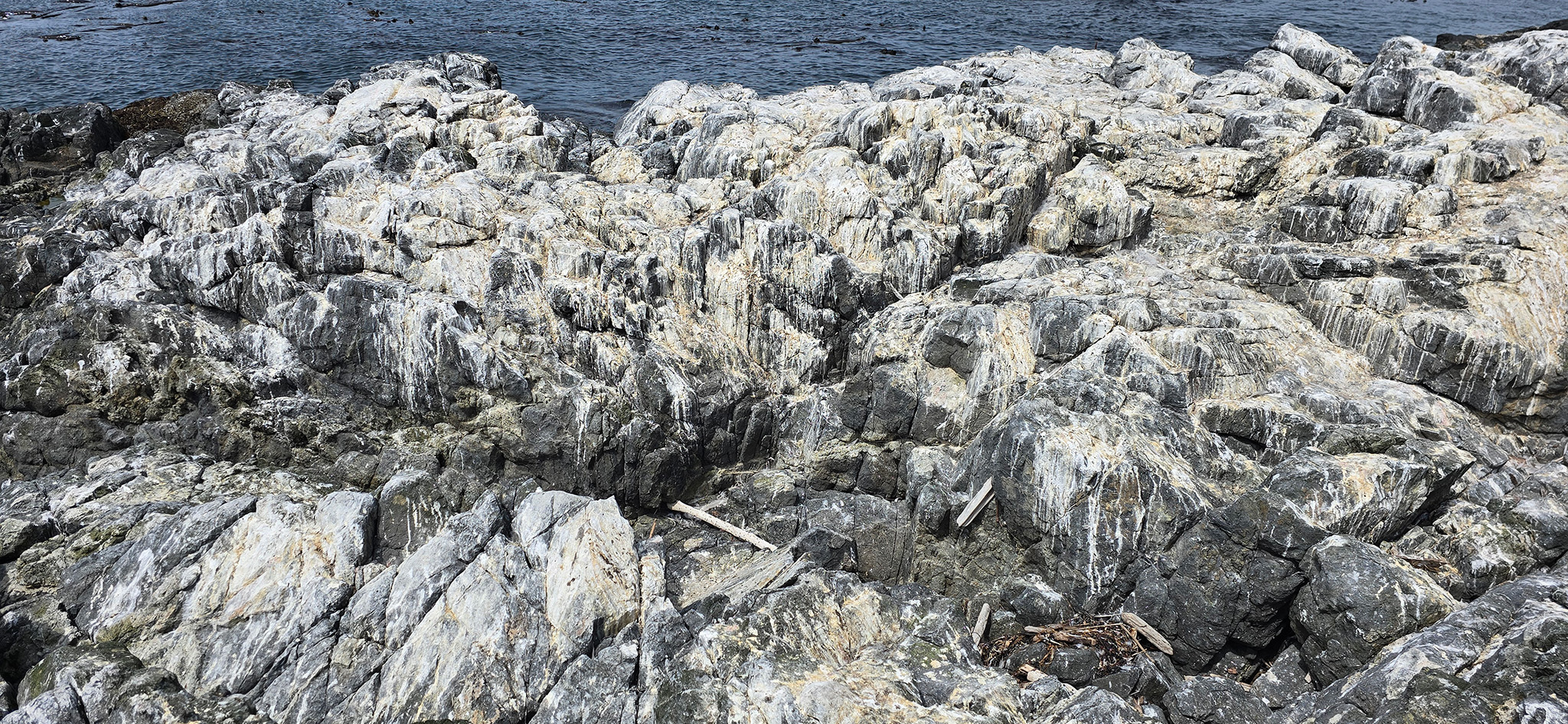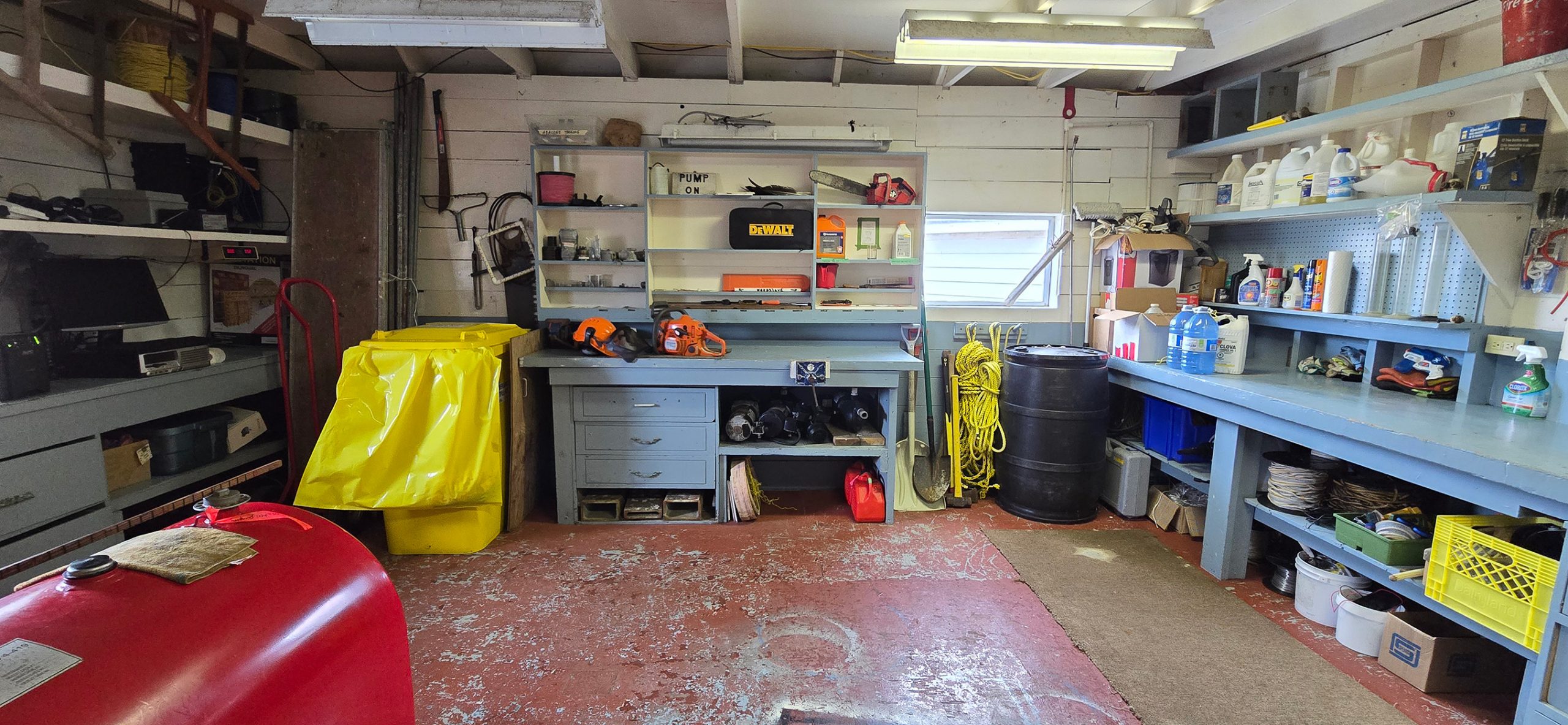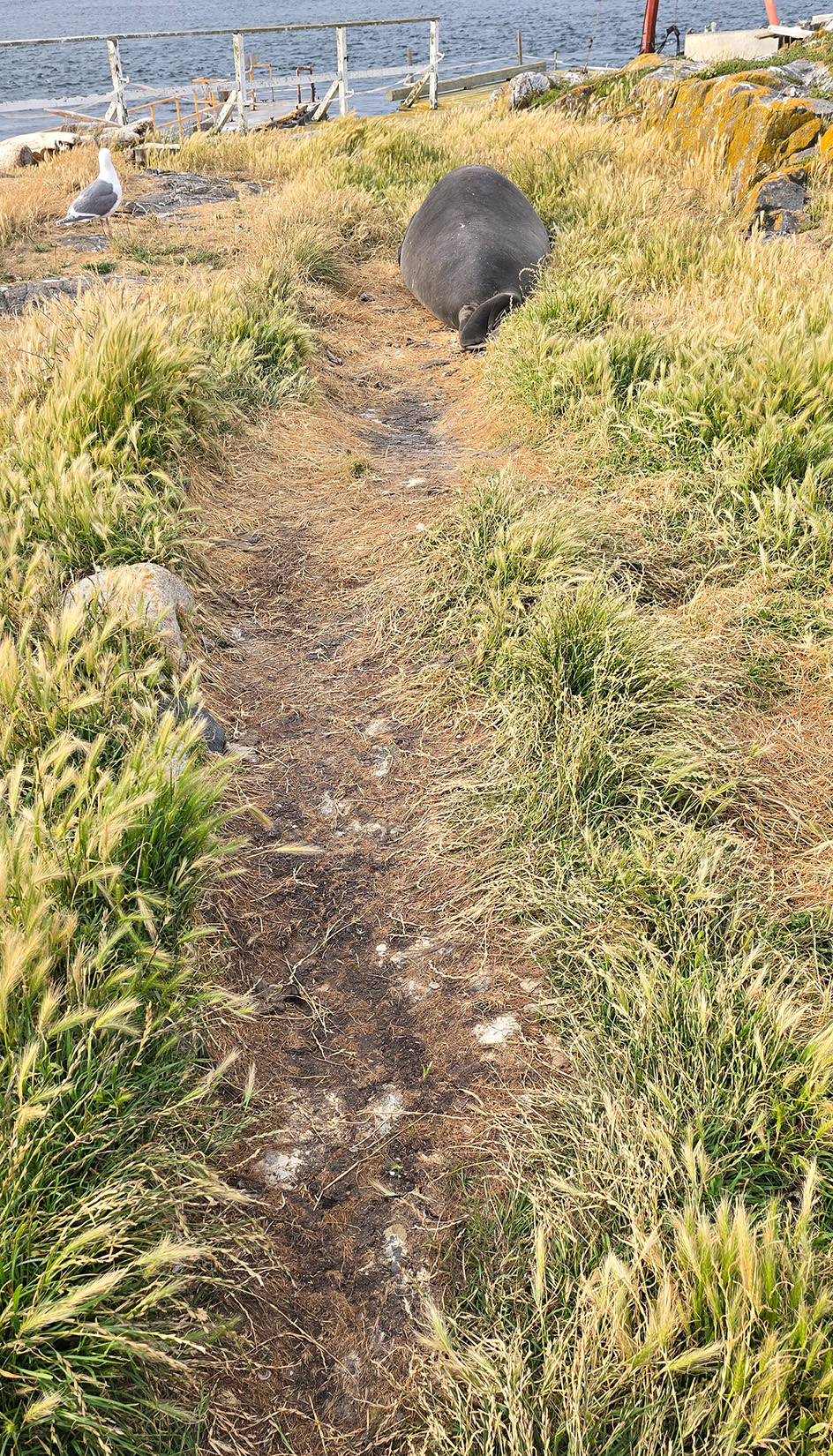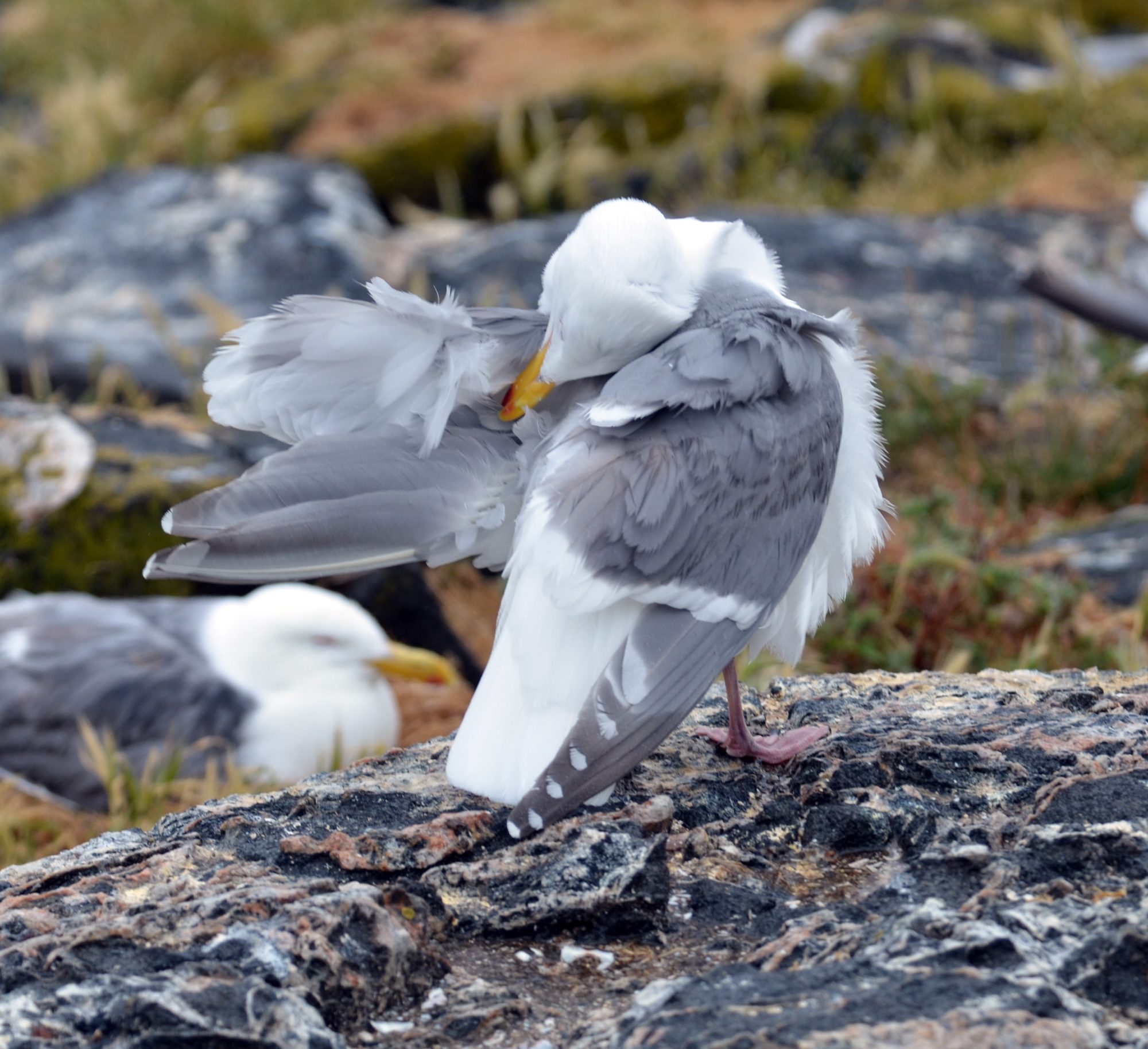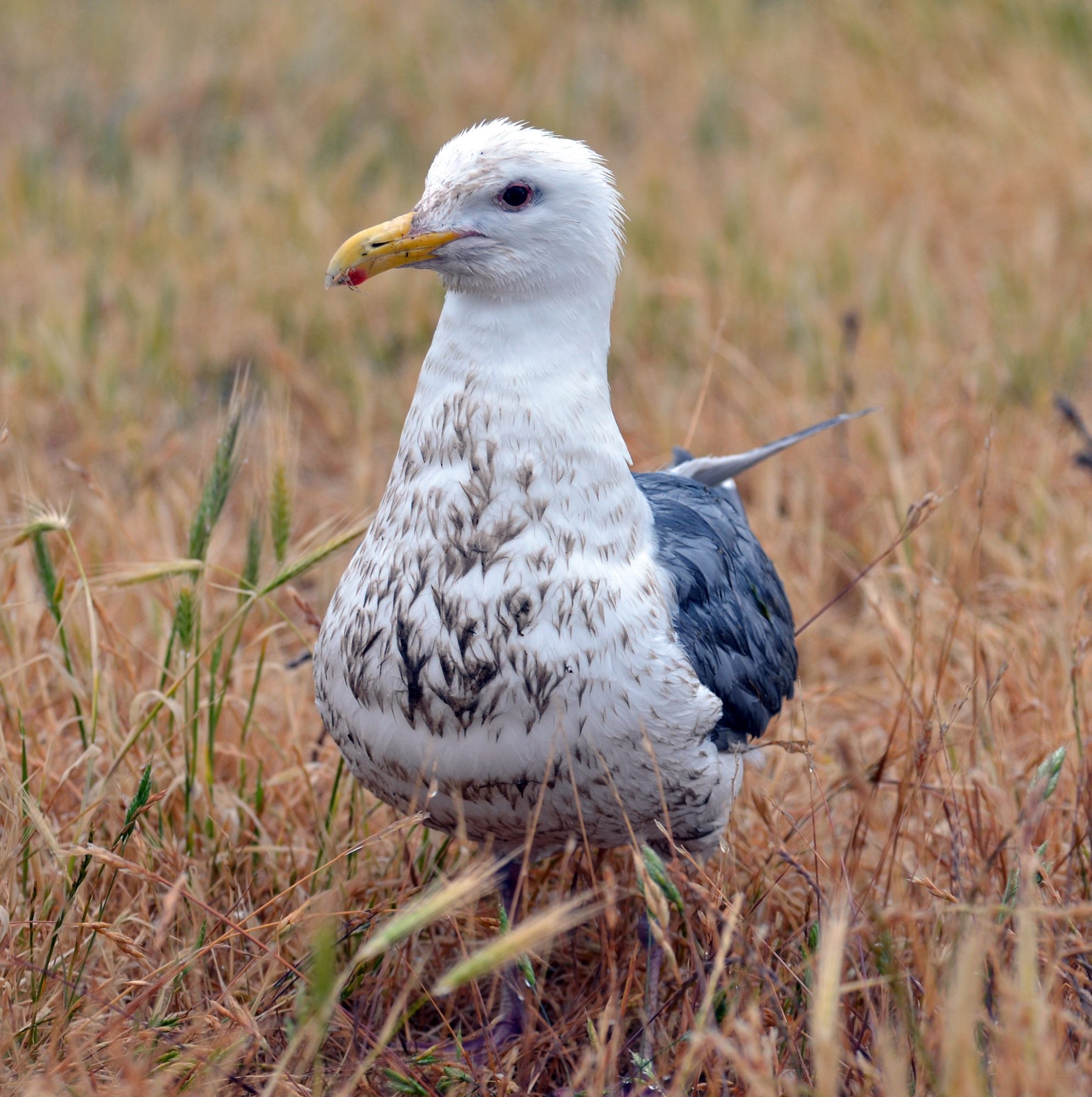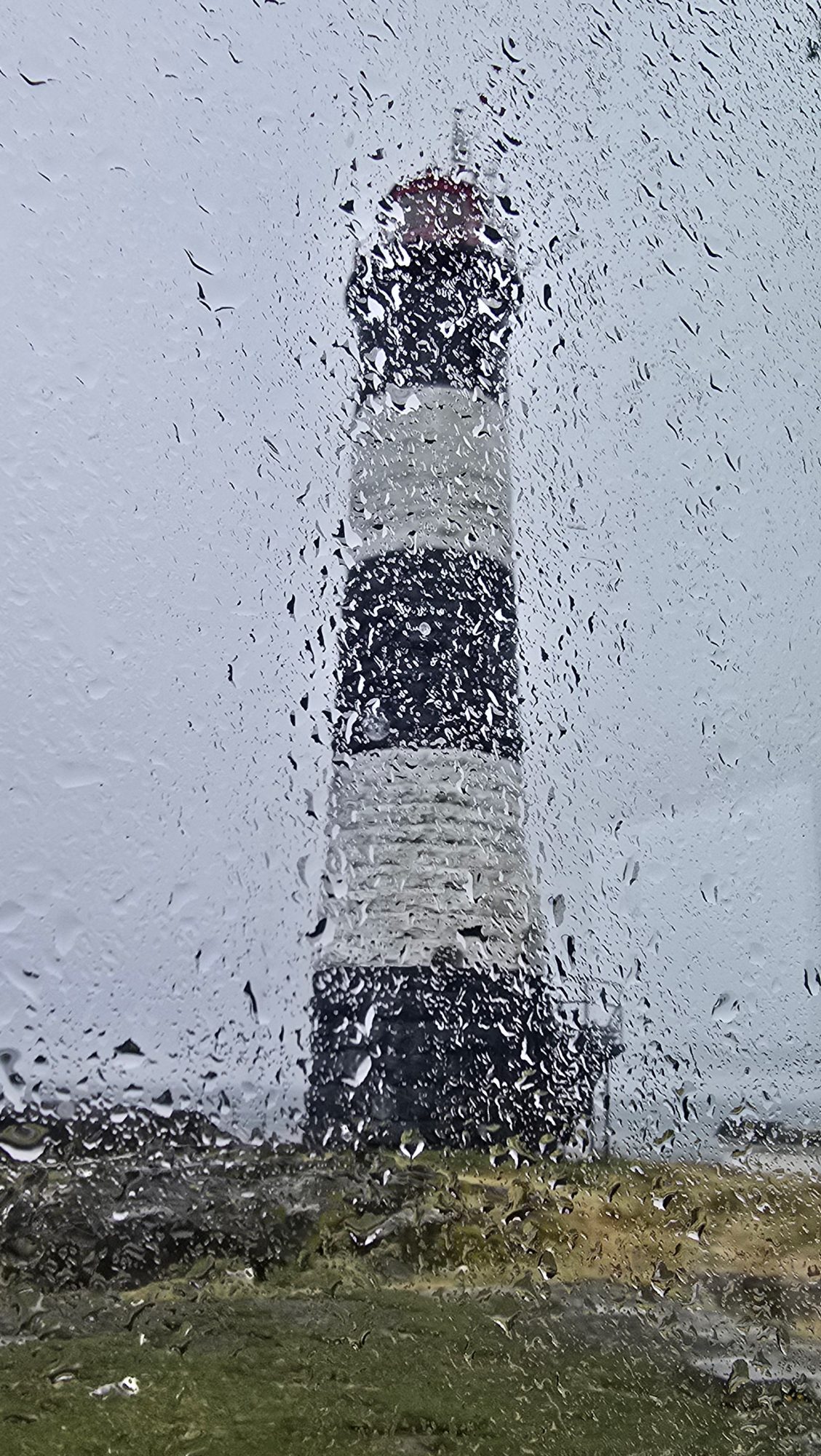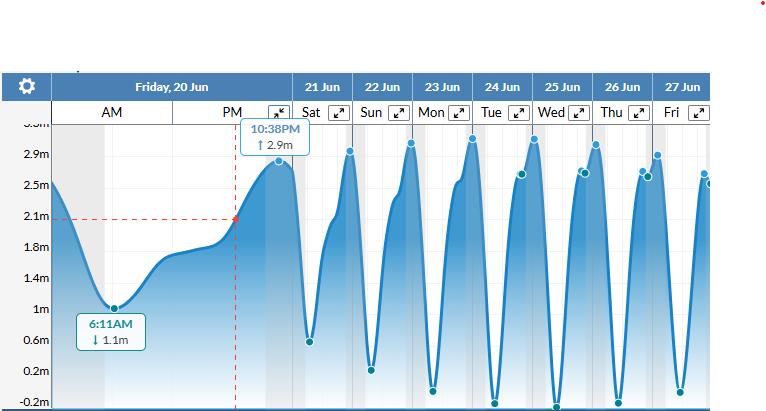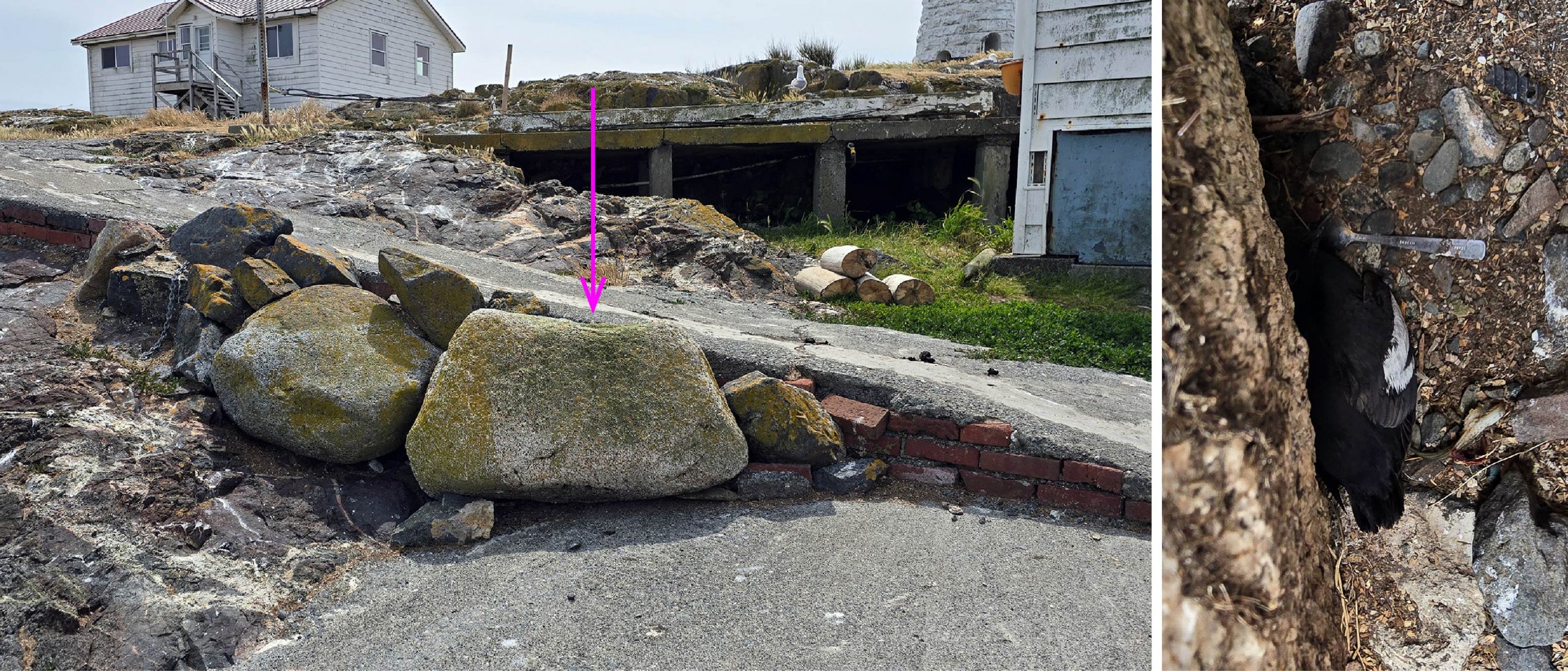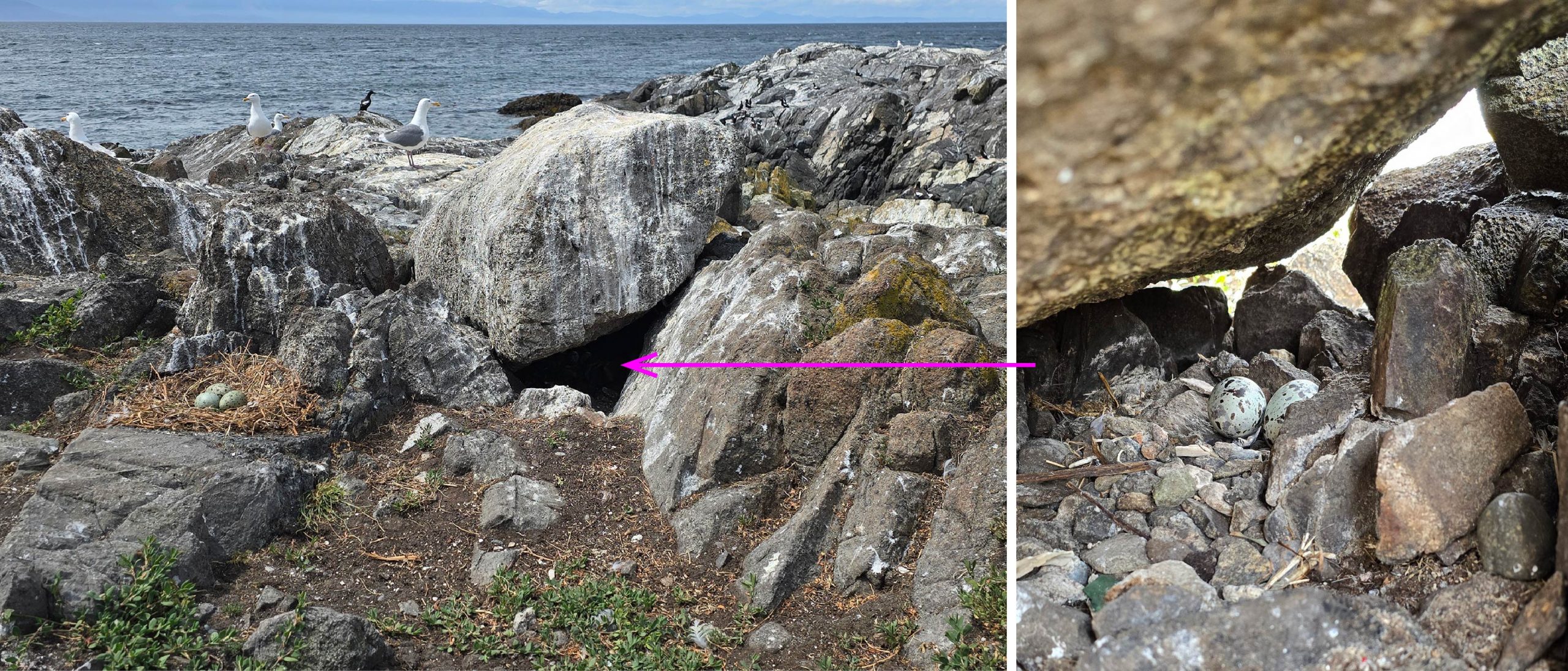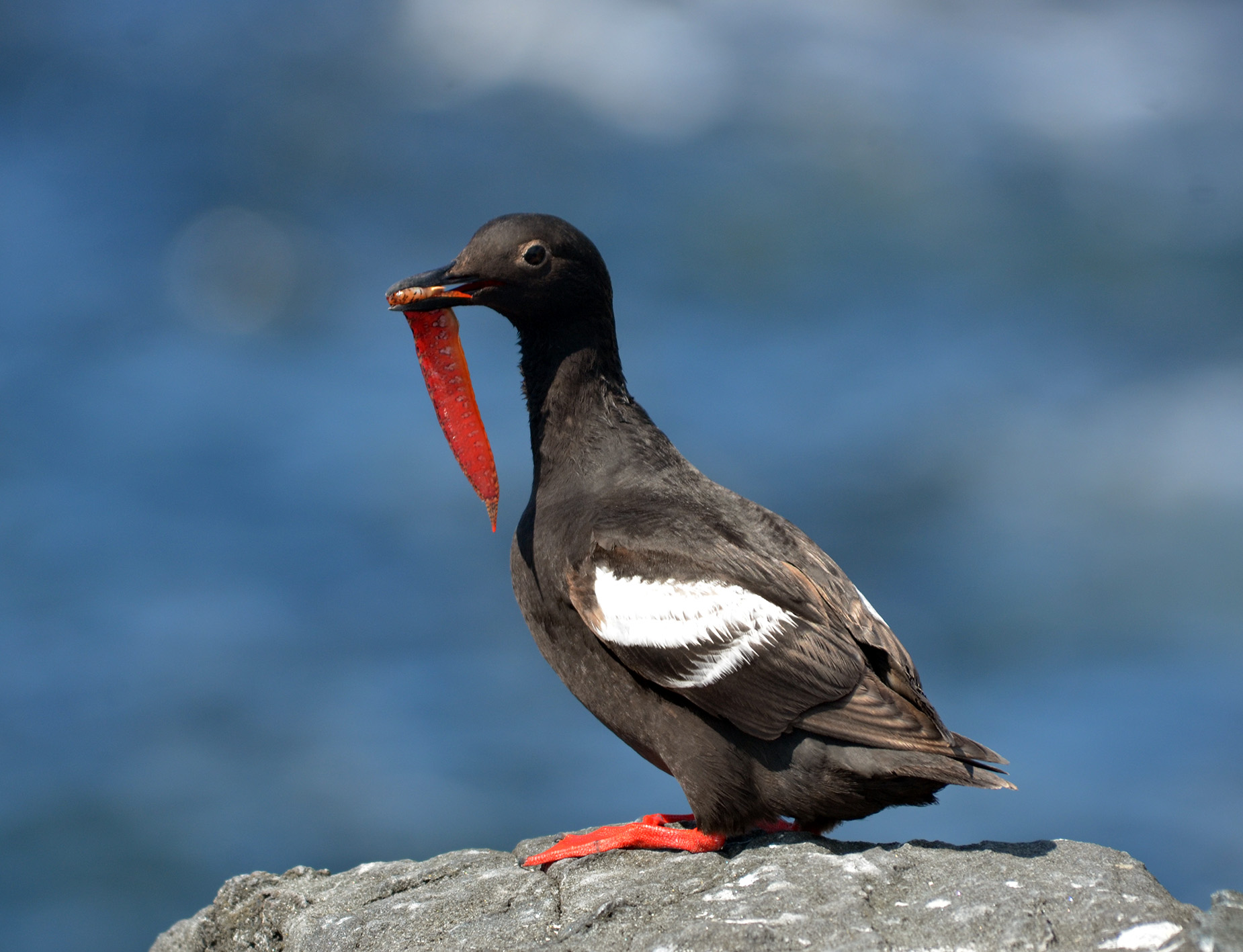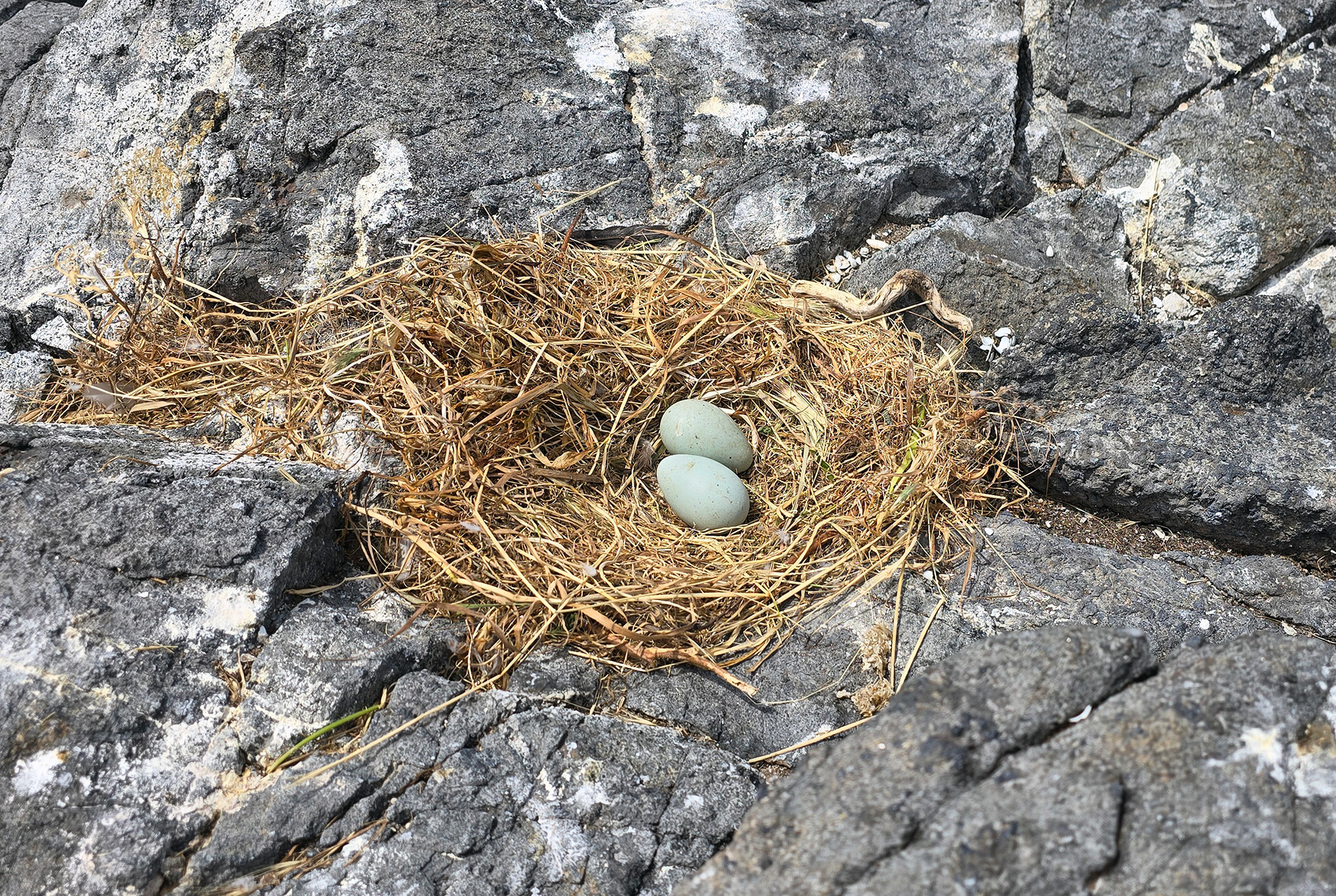Shipping traffic and pollution


This is part 2 of 11 ships go sailing by. I took these photos this morning of a ship and its extra long trail of exhaust which had not dissipated. Thinking of pollution and looking at the ships cloud-like exhaust reminded my of something I read that I’d like to share, but first a little bit about ship pollution.
There is accidental pollution from loss of cargo, fuel or oil, and there is operation pollution from the discharge of sewage, ballast water, tank washings, from anti-fouling systems, tank venting and from engine exhaust. In terms of exhaust, shipping contributes about 3% of world’s greenhouse gas emissions and 20% of the nitrogen oxides and 10% of the sulfur oxides emissions. The burning of bunker oil in the ship’s diesel engines produces the NOx, SOx, particulates, carbon monoxides, carbon dioxides, hydrocarbons, and other subsequently formed secondary chemicals … all bad, all contributing to climate change.
International Convention for the Prevention of Pollution from Ships (MARPOL) addresses the concerns of pollution of the marine environment. The requirements for nitrous oxide emissions from diesel engines, sulphur content of fuel, fuel oil quality, emissions of ozone-depleting substances, incinerators, emissions of volatile organic compounds etc, are in Annex VI Regulations for the Prevention of Air Pollution from Ships, which came into effect in 2005.
Since then the IMO set new sulfur-emissions regulations for implementation by larger ships beginning in January 2020, reducing sulfur by 80%. This should help right? It turns out, it made climate warming worse! The sulfur dioxide reacts with water vapour to produce aerosols that reflect sunlight and those clouds that follow ships, they actually help cool the oceans. This was published in the journal Nature and they suggest geoengineer and marine cloud brightening may be a viable method to temporarily cooling the climate. So…Who’d a thunk? What a mess we are in.
Links
- Shipmap.org – an animated presentation of all the global shipping traffic over a one year period, with a CO2 ticker in the header.
- Read the Nature article “Abrupt reduction in shipping emission as an inadvertent geoengineering termination shock produces substantial radiative warming”
- Environmental impacts of Shipping – Wikipedia
Wildlife notes:
There is not much to report. I found a large creamy white egg in the killing fields by the house. It was the Canada goose egg from the nest on the opposite side of house, under the back stairs. Why the gulls would take it all the way around the house to destroy it is baffling. I wonder if she recognized her egg while looking for something to eat – it has been weeks since she ate.

Blurry photo taken through the window of the two remaining Canada geese foraging. They had just walked past their very own empty egg, seen in the bottom left.
Facility work
- cleaned the solar panels
- cleaned things in the house (bleached and scrubbed the south and north tiled entry ways in the Keeper’s house and other things)
Vessels
- Ecotourism: 11
- Private: 1
Weather
Gentle southwest breeze throughout the day, moderate westerly breeze in the evening. Skies overcast, periods of rain in the late afternoon and evening. Daytime temperatures: low 11, high 14.
 The gull chicks are hatching! It explains why I was decorated by the Sign gull yesterday. This afternoon I discovered two hatched chicks and one egg in their nest. The first kernel in the bag to pop. By evening the new chicks were seen all over. It is helmet time for me or … walk slowly and carry a broom stick. The stick is not for swinging at the gulls but carried over the shoulder as an alternate target
The gull chicks are hatching! It explains why I was decorated by the Sign gull yesterday. This afternoon I discovered two hatched chicks and one egg in their nest. The first kernel in the bag to pop. By evening the new chicks were seen all over. It is helmet time for me or … walk slowly and carry a broom stick. The stick is not for swinging at the gulls but carried over the shoulder as an alternate target
















